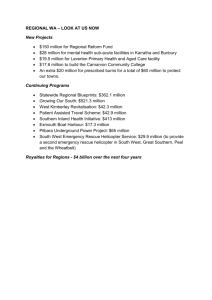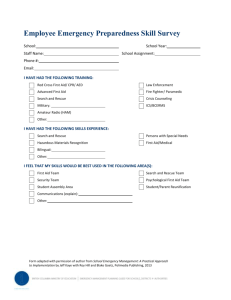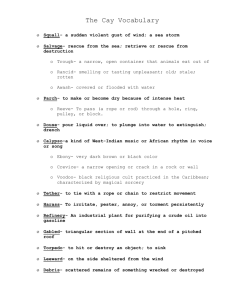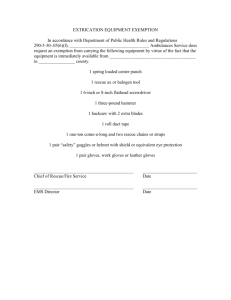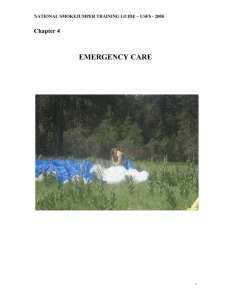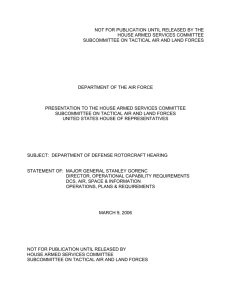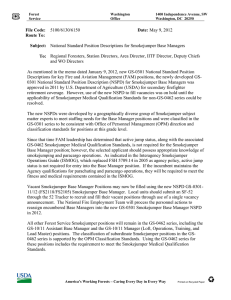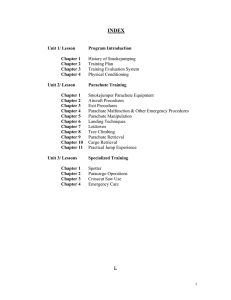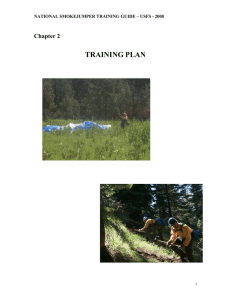TITLE 1500 - EXTERNAL RELATIONS 4/87 R-1 SUPPLEMENT 51
advertisement
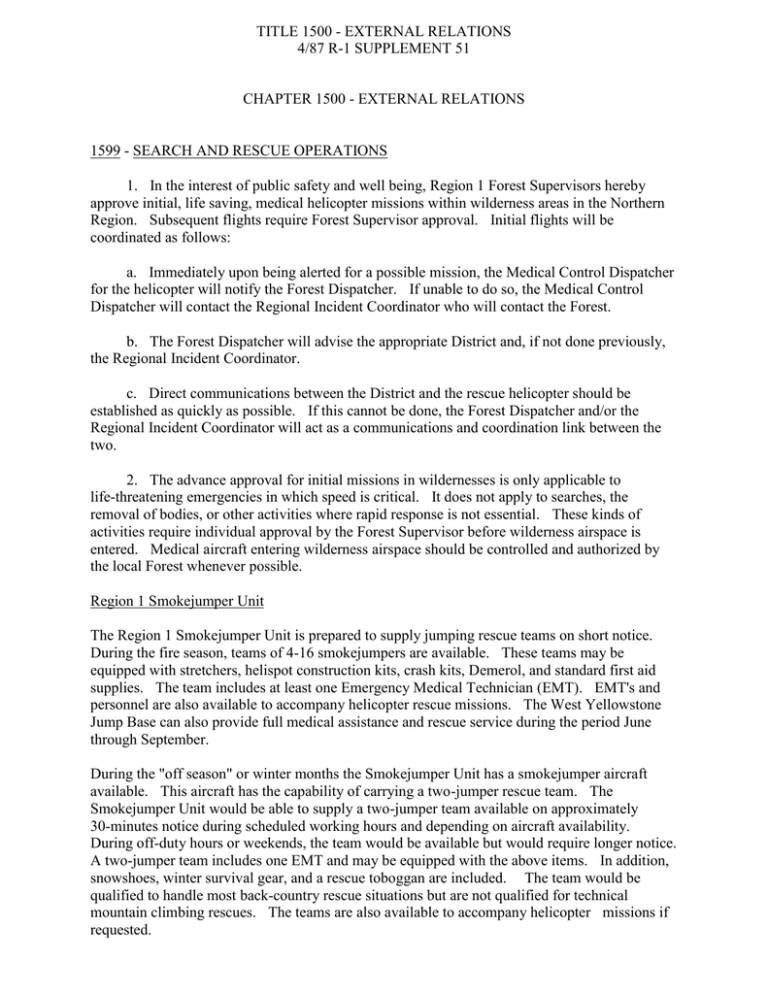
TITLE 1500 - EXTERNAL RELATIONS 4/87 R-1 SUPPLEMENT 51 CHAPTER 1500 - EXTERNAL RELATIONS 1599 - SEARCH AND RESCUE OPERATIONS 1. In the interest of public safety and well being, Region 1 Forest Supervisors hereby approve initial, life saving, medical helicopter missions within wilderness areas in the Northern Region. Subsequent flights require Forest Supervisor approval. Initial flights will be coordinated as follows: a. Immediately upon being alerted for a possible mission, the Medical Control Dispatcher for the helicopter will notify the Forest Dispatcher. If unable to do so, the Medical Control Dispatcher will contact the Regional Incident Coordinator who will contact the Forest. b. The Forest Dispatcher will advise the appropriate District and, if not done previously, the Regional Incident Coordinator. c. Direct communications between the District and the rescue helicopter should be established as quickly as possible. If this cannot be done, the Forest Dispatcher and/or the Regional Incident Coordinator will act as a communications and coordination link between the two. 2. The advance approval for initial missions in wildernesses is only applicable to life-threatening emergencies in which speed is critical. It does not apply to searches, the removal of bodies, or other activities where rapid response is not essential. These kinds of activities require individual approval by the Forest Supervisor before wilderness airspace is entered. Medical aircraft entering wilderness airspace should be controlled and authorized by the local Forest whenever possible. Region 1 Smokejumper Unit The Region 1 Smokejumper Unit is prepared to supply jumping rescue teams on short notice. During the fire season, teams of 4-16 smokejumpers are available. These teams may be equipped with stretchers, helispot construction kits, crash kits, Demerol, and standard first aid supplies. The team includes at least one Emergency Medical Technician (EMT). EMT's and personnel are also available to accompany helicopter rescue missions. The West Yellowstone Jump Base can also provide full medical assistance and rescue service during the period June through September. During the "off season" or winter months the Smokejumper Unit has a smokejumper aircraft available. This aircraft has the capability of carrying a two-jumper rescue team. The Smokejumper Unit would be able to supply a two-jumper team available on approximately 30-minutes notice during scheduled working hours and depending on aircraft availability. During off-duty hours or weekends, the team would be available but would require longer notice. A two-jumper team includes one EMT and may be equipped with the above items. In addition, snowshoes, winter survival gear, and a rescue toboggan are included. The team would be qualified to handle most back-country rescue situations but are not qualified for technical mountain climbing rescues. The teams are also available to accompany helicopter missions if requested. TITLE 1500 - EXTERNAL RELATIONS 4/87 R-1 SUPPLEMENT 51 When ordering first aid service and rescue facilities, call the Regional Fire Coordinator at the Aerial Fire Depot. When requesting rescue aid, the following information should be included: a. Type of accident (aircraft, snowmobile, horse, etc.) b. Name of victim, if available, and whether next of kin has been notified. c. Nature and extent of injuries. d. Location of the victim. e. How location is marked. f. What is evacuation plan. (Indicate assistance required--truck, helicopter, ambulance; rendezvous points and times; where victim should be evacuated to; advise whether receiving facility has been notified, etc.). g. Special equipment needed. Names of persons shall not be used during radio communications.
